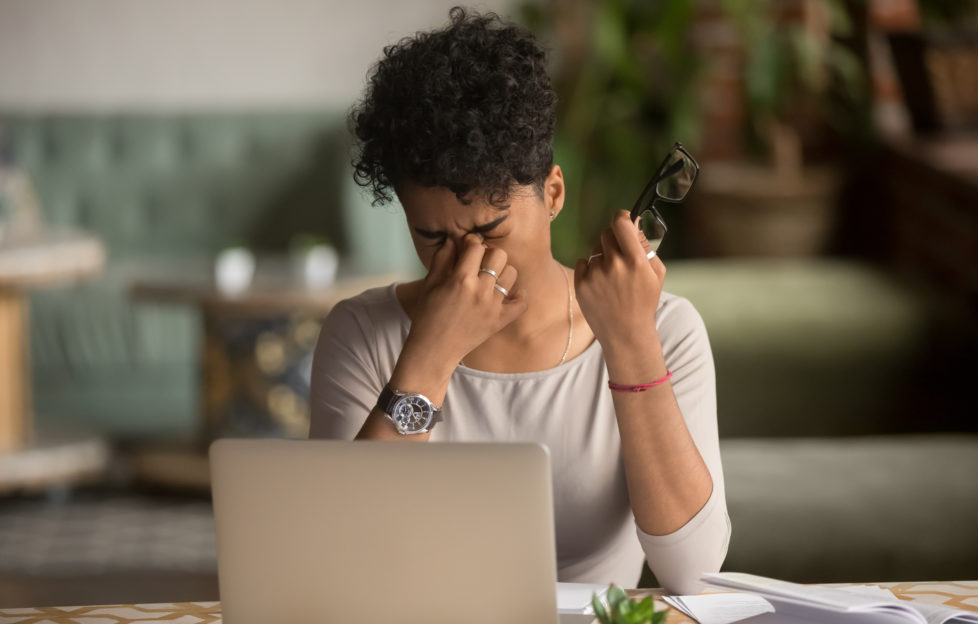Do You Suffer From Dry Eye Syndrome?

It’s National Eye Health Week (September 21-27).
So, alongside highlighting the importance of having regular eye checks, we’re taking a closer look at the common problem of dry eye.
Dry eye is an uncomfortable condition that can make your eyes feel red, gritty, scratchy and irritated.
Despite its name, this condition can also make your eyes watery.
The good news is that, although it may temporarily blur your vision, dry eye does not usually cause permanent damage.
And its symptoms can be relieved.
What causes dry eye?
Each time you blink, you leave behind a thin layer of moisture called the tear film over the front of your eye.
The tear film keeps your eye healthy, and promotes clear vision because it helps your eye focus properly.
Dry eye happens when something goes wrong with the tear film. One possibility is that your body is simply not producing enough tears.
Sometimes the balance of ingredients in your tears is not quite right.
The tear film is made up of three layers. Going from the inner- to the outermost surface of your eye, these are the mucin (mucous), aqueous (watery), and lipid (oily) layers.
Each layer has its job to do, and we need all three, in the proper balance, to keep the tear film healthy and working well.
You can also have problems if the tears are not spreading effectively across the surface of your eye.
Dry eye is more common as we get older. It can also result from other medical conditions, or show up as a side effect of certain medications.
See your optometrist
Any time you have a problem with your eyes, it is important to see your optometrist or GP.
Once it is diagnosed, there are three main ways to treat dry eye:
- make the most of the tears you have
- add artificial tears
- slow down the tear drainage system in your eyes.
To protect your natural tear film, it may help to turn down the central heating, and use a humidifier to moisten the air.
We automatically blink less often when we’re reading, looking at a computer or watching TV.
So take breaks when you can, and remind yourself to blink more often while you are looking at the pages or screen.
Most people with dry eye need to use lubricating eye drops, which are also called artificial tears.
There are gels or specially formulated ointments for dry eye, to use while you are asleep.
Your pharmacist, optometrist or GP can recommend the best choice for you.
Some people may also benefit from a medical procedure called punctal occlusion, which blocks the tear ducts so that your tears don’t drain away as fast.
For more on National Eye Health Week, click here.
For more health advice from “The People’s Friend”, click here.










